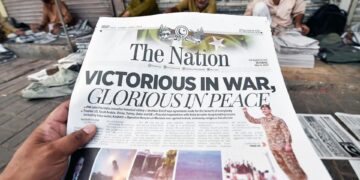If you had been asked five years ago what the future would be like today, chances are that your answer would be a far cry from the world we now live in.
The Covid-19 pandemic has changed the way we work, potentially forever. Job market disruptions were at its peak in 2020, with thousands losing their jobs, and numerous businesses closing down in the months after. Today, the pandemic’s impact continues to be felt, even as the nation prepares to accept Covid-19 as endemic, and a part of our daily reality.
For youths entering the workforce, or for the young professionals just starting out in their careers, no playbook exists for how to navigate the new labour market. It is something they are forced to grapple with, as video interviews become the new normal, and remote work becomes an accepted, almost expected, part of the job.
In a series of videos by Yayasan MENDAKI, they interviewed Malay/Muslim youths on the streets to understand their concerns on the future job market, thoughts on emerging industries, understanding of skills and diverse education pathways, and the in-demand skills they believe are of importance.
In the videos, youths interviewed expressed concerns about competing with foreign talents, job shortages, and the impact of the pandemic on sectors of interest to them.
With these concerns in mind, how can youths navigate a world that has been turned on its head? What can they do to future-proof themselves, and ensure that they are future-ready in an ever-changing world?
Preparing for uncertainty through diverse pathways

Republic Polytechnic student Muhammad Khidir Zakaria is cognisant of how uncertain the future is. The 22-year-old is currently pursuing a Diploma in Health Management and Promotion, in the hopes of becoming a healthcare professional specialising in either chiropractic treatment, physiotherapy, and/or acupuncture.
His interest in the sector was first piqued during his years in the Institute of Technical Education (ITE), when he struggled with being overweight. Over his years in the institution, he gradually shed the excess kilos through regular exercising, and developed a keen interest in sports and health.
But Mr Khidir knows better than to put all his eggs in one basket: “I feel that the main concern is not being able to get there with only one plan… Instead, I also need to have a few other ways to get there.”
And so, instead of focusing on just one course, the young student had spent his years in ITE trying out different fields, such as taking a Nitec course in Mobile Device and Electronics, and attaining a Higher Nitec in Facility Management. The vastly different courses he has completed has allowed him to gain knowledge from three different industries, making him a more versatile hire in the future.
Embracing the growth mindset and creating opportunities
When it comes to managing the uncertainties of the future, 28-year-old data analyst Ahmad Zaki Mohamad Pauzi believes that being future-ready is less about hard skills, and more about one’s mindset.
“The one thing that is future-proof is mindset – the adaptive growth mindset,” says Mr Zaki.
“If you have that, you’ll start to understand what skills are needed, and what talent is lacking in the industry,” he explains. “You always have to be ready to learn new things. That’s how you grow…and that will then lead on to the different skills after that.”
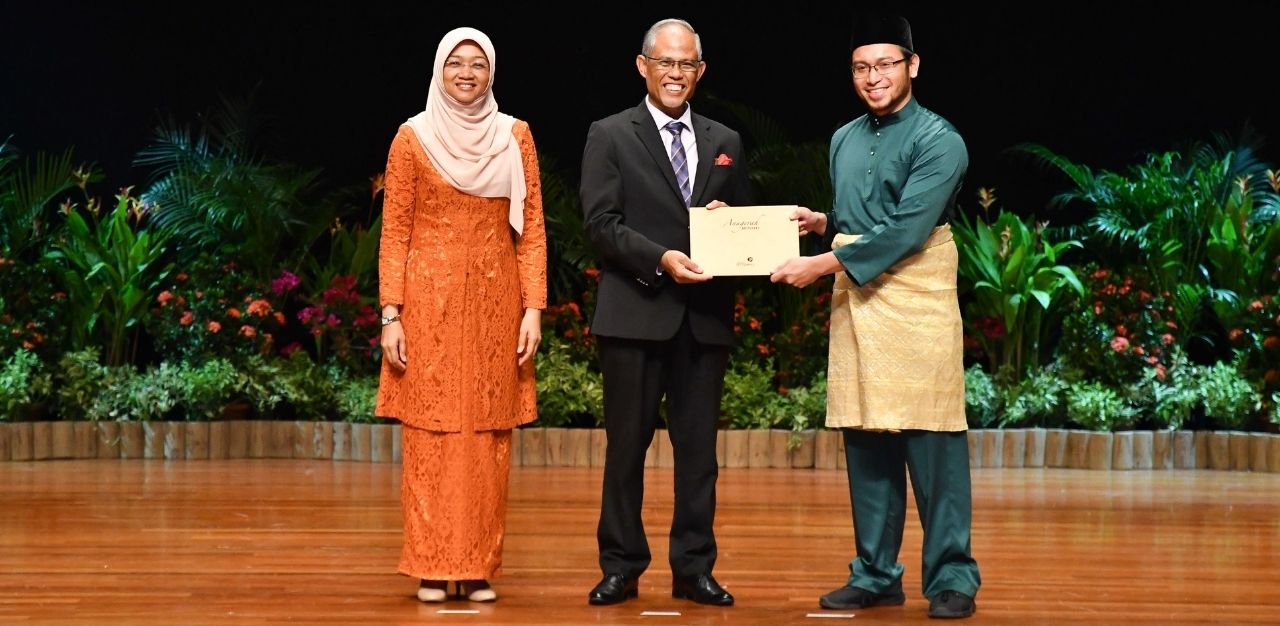
This is something Mr Zaki strives to embody in his own life. Holding down a full-time job in a multinational corporation (MNC) does not hinder his hunger for growth and learning. Far from it, in fact – the young adult is concurrently pursuing a Master’s in Management and a PhD.
The former, he explains, was an opportunity offered to him by his company and one that he hopes will fast track his path into a management position. The latter, he admits, is primarily an avenue for him to pursue his passion for research. But there, too, lies opportunities in that.
“One of the things I have realised, especially in the tech industry, is that although we have a lot of innovators and idealists, we also need a lot of pragmatists and realists, and people on the ground to understand and bridge the gap between academia and industry,” he explains.
He observes that people who can bridge this gap are lacking in today’s world, highlighting how many go on to pursue their PhDs and post-doctorate degrees, but that academia often does not translate into applicable industrial practices.
“This is what I’m currently doing,” he says. “I’m working and in the industry, but I’m also doing my research. I’m building that bridge between the universities and academic institutions, with the companies, to propel our R&D [research and development] efforts.”
Preparing for emerging industries with 21st century skills
With the pandemic still raging, healthcare is certainly a growing industry. But in wanting to enter this field, Mr Khidir recognises that he has a ways to go, especially since he currently lacks practical experiences that will allow him to enter the chiropractic or physiotherapy field.
He is thus anticipating the mandatory internship placement in the final year of his diploma education, in the hopes that this experience will grant him the practical skills to be a more attractive hire.
Besides hard skills, however, Mr Khidir also highlights the importance of soft skills, such as communication.
When asked about what kind of support he would like to see in preparing for his future, he cited greater opportunities for collaborative learning, even during home-based learning.
“[Collaborative learning] is vital as you can discuss and speak your mind,” he explains. This will thus build communication skills, which he believes “is essential as you need to communicate with people in workplaces.”
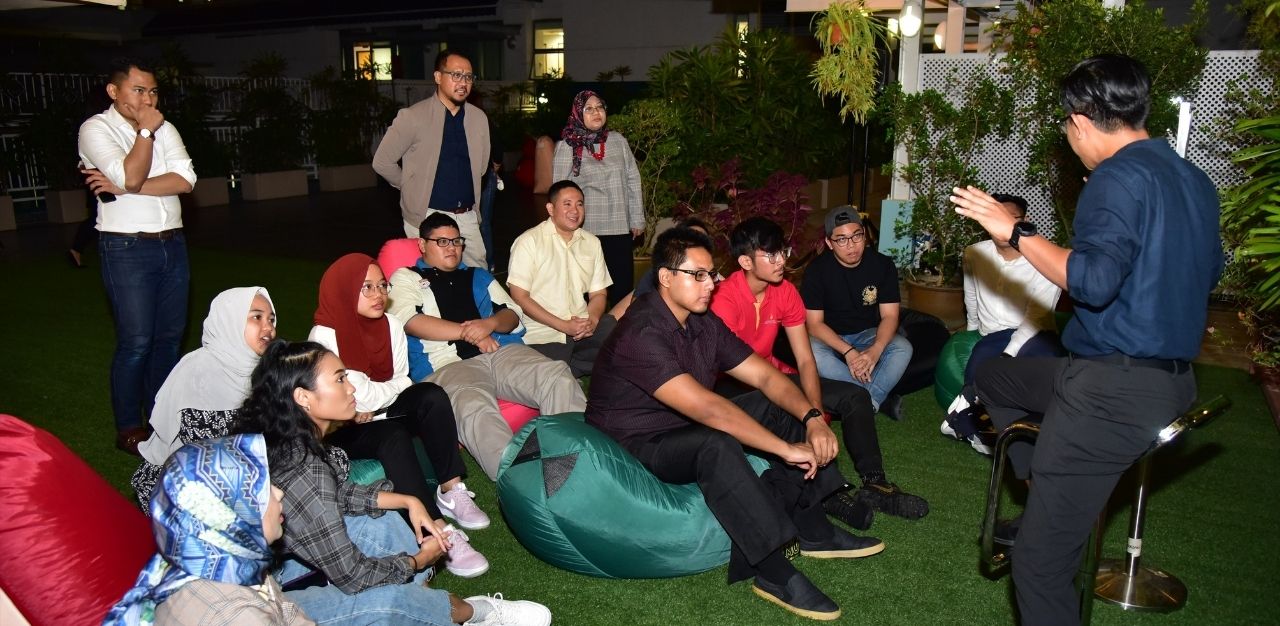
This focus on skills is also raised by Mr Zaki, who clarifies that while paper qualifications are important, proven skills are needed to stand out from the pack. His sentiments appear to be reflected by youths on the street, of which three of four youths interviewed highlighted skills as a more important factor than paper qualifications, while the remaining interviewee believed they were equally important.
To illustrate this point, Mr Zaki shares about his experience in landing his current role.
Despite attaining stellar results in university, so much so that he was awarded the Anugerah MENDAKI Award, which is given to graduates who are in the top 10 per cent of the national cohort, Mr Zaki was up against stiff competition that was arguably more accomplished than he was.
Out of 20 applicants to his firm’s graduate programme, he was the only one that held a degree. The rest had either a Master’s or a PhD. Yet, he managed to land the job as he “recognised [his] value”, and made sure that the potential employer recognised it too.
“Both [paper qualifications and skills] have to work together. Qualifications do not necessarily gauge a person’s ability in the workforce, but it’s also necessary to be able to put your foot in the door,” he explains.
With that said, he also acknowledges that the importance of paper qualifications may vary depending on your industry, and his advice is not a “one-size-fits-all” solution. For instance, doctors and lawyers would require paper qualifications to practise.
Speaking as someone who works in the technology sector, he says that it is “hungry” for skills and talent: “More importantly, we’re hungry for people who are willing to continuously learn… I’m not saying that one is better than the other, but sometimes, it is necessary to put an emphasis or priority on skills and talents,” he says.
Tips for the future
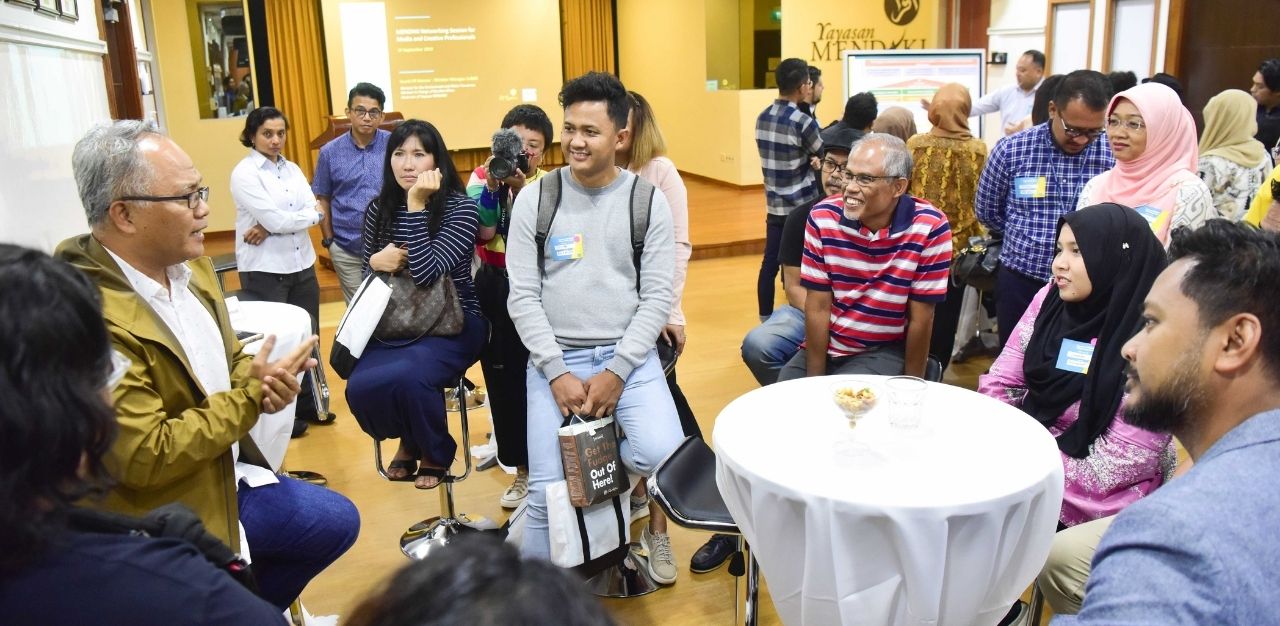
Having been there and done that, Mr Zaki dispenses three valuable tips on how youths can be future-ready, and take actionable steps to preparing for their careers:
Talk to people and network. Mr Zaki may be living the life right now, but this was not always the case. In his early days when he was unable to find a full-time job, he worked in the gig economy as a food delivery rider and private hire driver, while also teaching tuition part-time. He says, “When you’re doing that side hustle, talk to people, find out where the opportunities are, and then work towards it. That gets you out there.”
Build your portfolio. Mr Zaki explains that building your portfolio is to build your brand – What are you known for? What is it about you that makes you interesting?
“It can be anything, it can be something really simple, but if it brings value to what you are pursuing, definitely go for it,” he advises.
To embrace failure. “Failing is fine,” he emphasises. It’s not about the failure, but if you failed, what went wrong? What are the things you can learn from it?
“It’s always about the learning,” he says. “We really need to inculcate that culture of allowing people to fail, and because of them failing, that’s how we’re able to open their eyes and look at what the mistakes are, and what we can learn from it.”
Becoming Future Ready with Yayasan MENDAKI
Through their four-week Future Ready campaign, MENDAKI introduces a slew of content such as voxpop videos and Ask Professionals Anything on Instagram to prepare Malay/Muslim youths and young adults for an ever changing workforce.
Each week, MENDAKI had one area of focus, starting with the future job market in the first week of July, and covering topics relating to emerging industries, multiple education pathways, and in-demand skills in subsequent weeks.
Under the Future Ready programme, one such initiative that Mr Khidir has participated in and recommended is the NextStop Seminar.
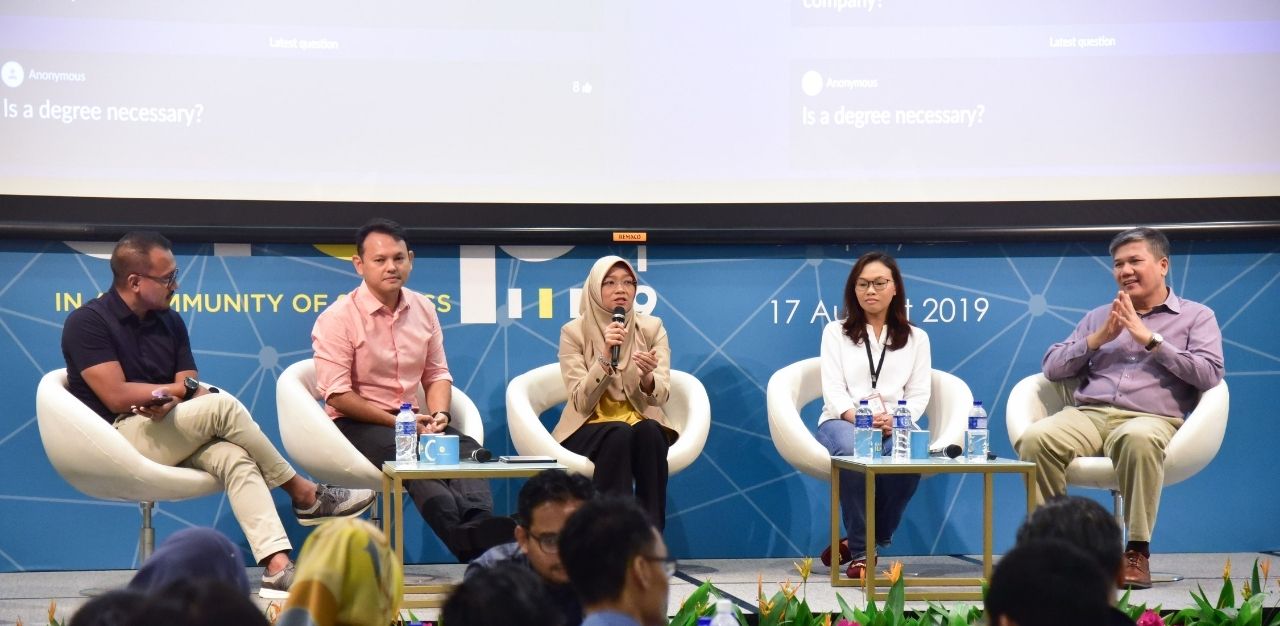
NextStop brings professionals, experts, and thought leaders from various academic and career pathways together, to speak with post-secondary and tertiary students on how to prepare themselves for the next stage of life post-graduation. NextStop 2018’s theme – Game Changers in the Future Economy – focused on the workforce of the future, highlighting trends and changing landscapes.
Meanwhile, NextStop 2019’s theme of A Future Ready Generation in a Community of Success focused on how the youths of today play a pivotal role in shaping the Singapore of tomorrow. This, Mr Khidir credits for helping him make the decision to enter a polytechnic instead of enlisting immediately after graduating from ITE.
“The seminar was an eye-opener for me,” he shares. “When I wanted to venture out after I completed ITE, I thought National Service was the only way for me, and there were no other places [options].”
He adds that The NextStop Seminar had taught him not to focus on one plan specifically. Instead, he learned that planning for the future is subjective, and what works for one may not work for another. The seminar thus directed him to self-reflect and discover that he prefers to keep his options open, and to assess multiple pathways at a time, while pursuing his goals.
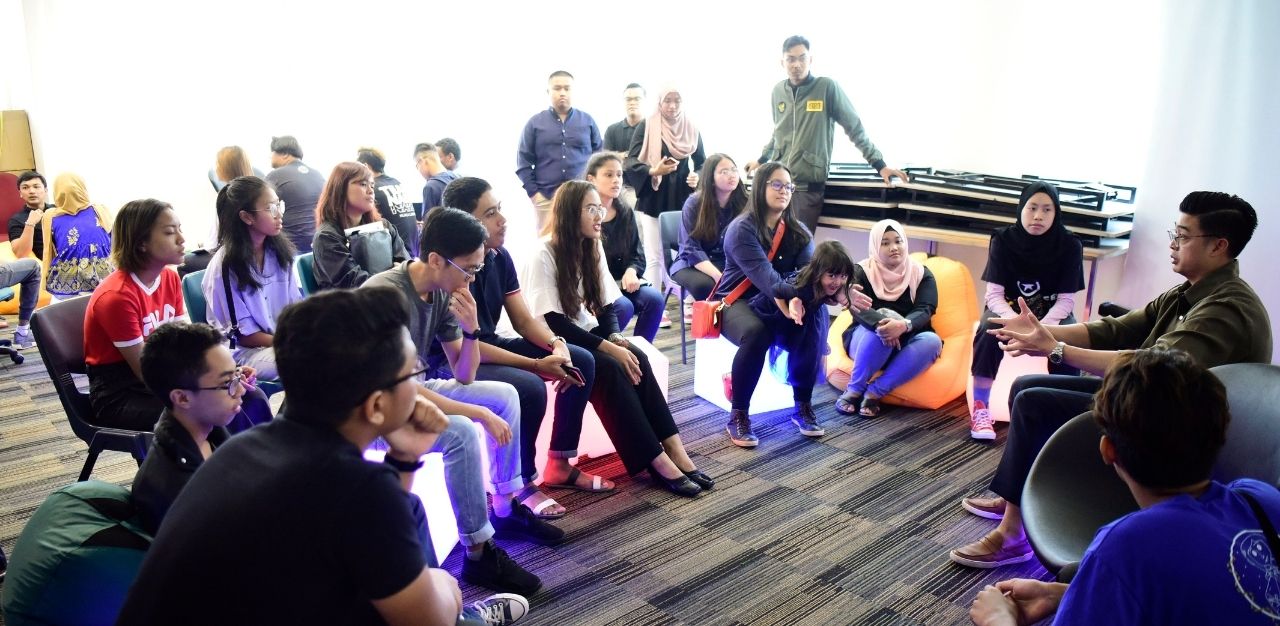
Besides equipping youths with skills, MENDAKI also has platforms available for students and young professionals alike to network and build connections, as Mr Zaki has advised. The Professional Network allows participants to learn from sharing sessions with industry experts and organisation representatives, while the Student Network aims to cultivate civic participation and inspire students to be active and contributing citizens.
For more information on how you can embrace opportunities and discover your potential to become Future Ready, kindly visit Yayasan MENDAKI’s website or contact them here.
Join the conversations on TheHomeGround Asia’s Facebook and Instagram, and get the latest updates via Telegram.







